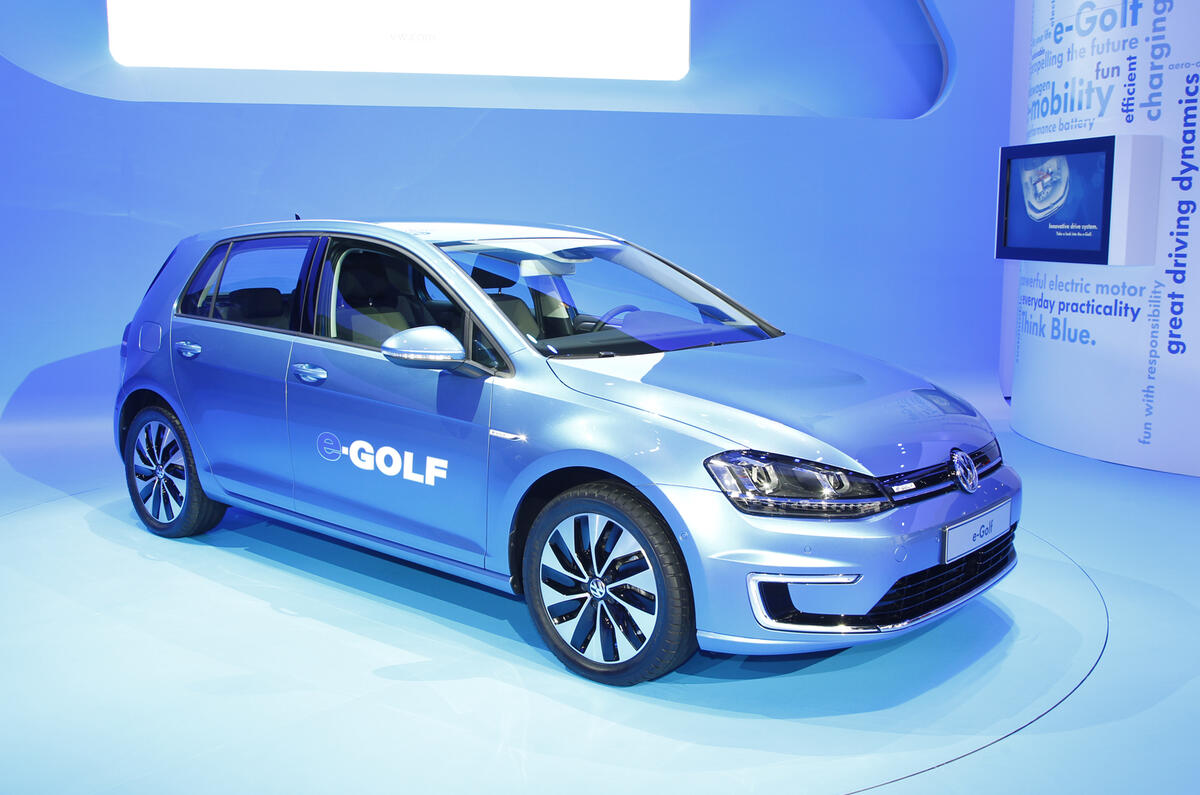The Volkswagen Group isn’t in a hurry to introduce a hydrogen fuel cell vehicle to the general market, according to one of the key figures behind the German giant’s ambitious e-mobility strategy.
Although global rivals such as Honda, Toyota and Hyundai are moving closer to introducing production fuel cell vehicles, the VW Group’s commissioner for electric drive systems, Rudolf Krebs, isn’t convinced that hydrogen will be fully marketable until 2020.
Krebs was speaking at the Los Angeles motor show, where the VW Group reiterated its intention to become the world’s biggest player in e-mobility by 2018 by producing electric and hybrid vehicles in all car segments and across all of its brands.
“We have a huge hydrogen car programme ongoing,” said Krebs. “We have a lot of cars that are being tested with a fuel cell stack, but we have to make clear that hydrogen vehicles in bigger numbers will not happen before 2020. There is no infrastructure available and the technology is extremely expensive and not as reliable as conventional vehicles.”
He pointed out that although hydrogen had the benefits of zero tailpipe emissions and none of the driving range issues attached to battery-electric vehicles, there are still concerns over the efficiency of producing the energy.
“We still have the problem that hydrogen mobility only makes sense if you use green energy – you have to use green electricity, then convert it from electric to hydrogen, during which you lose about 40 per cent of the initial energy,” explained Krebs.
“Then you have to compress the hydrogen to 700bar to store it in the vehicle, which costs you further efficiency. After that, you have to convert the hydrogen back to electricity through the vehicle’s fuel cell, which brings another efficiency loss. In the end, from your original 100 per cent electric energy, you end up with between 30 and 40 per cent efficiency.”
Krebs believed the best solution would be a vehicle that relies primarily on battery electric propulsion, with a hydrogen fuel cell as a back-up.
“The best hydrogen vehicle will be a plug-in – you enlarge the capacity of the battery to a certain extent, and do most of your journeys using that, and only in the case of emergency – or if you wish to drive long distances – do you use the hydrogen. In terms of energy saving, this is the only way to have a sensible hydrogen vehicle,” he said.
The Volkswagen Group’s MQB car platform has been future-proofed to accept fuel cell technology if necessary, said Krebs, but the company’s short-term focus was on refining its electric and hybrid cars: “First of all we need to do our homework and make a very good electric and plug-in hybrid vehicles. In doing so we bring down the cost of the components and optimise the efficiency and performance of the products. Hydrogen can come later because it uses all the same technological components.”
By next year the VW Group will have 14 hybrid, electric and plug-in vehicles on the market across all of its brands, including the e-Golf EV shown off at the LA show this week. Krebs said 40 of the group’s models can be fitted with alternative drivetrains, according to demand.




Join the debate
Add your comment
"isn’t in a hurry"....
VW's resolve to stay at the back end
hyundai hydrogen heros?